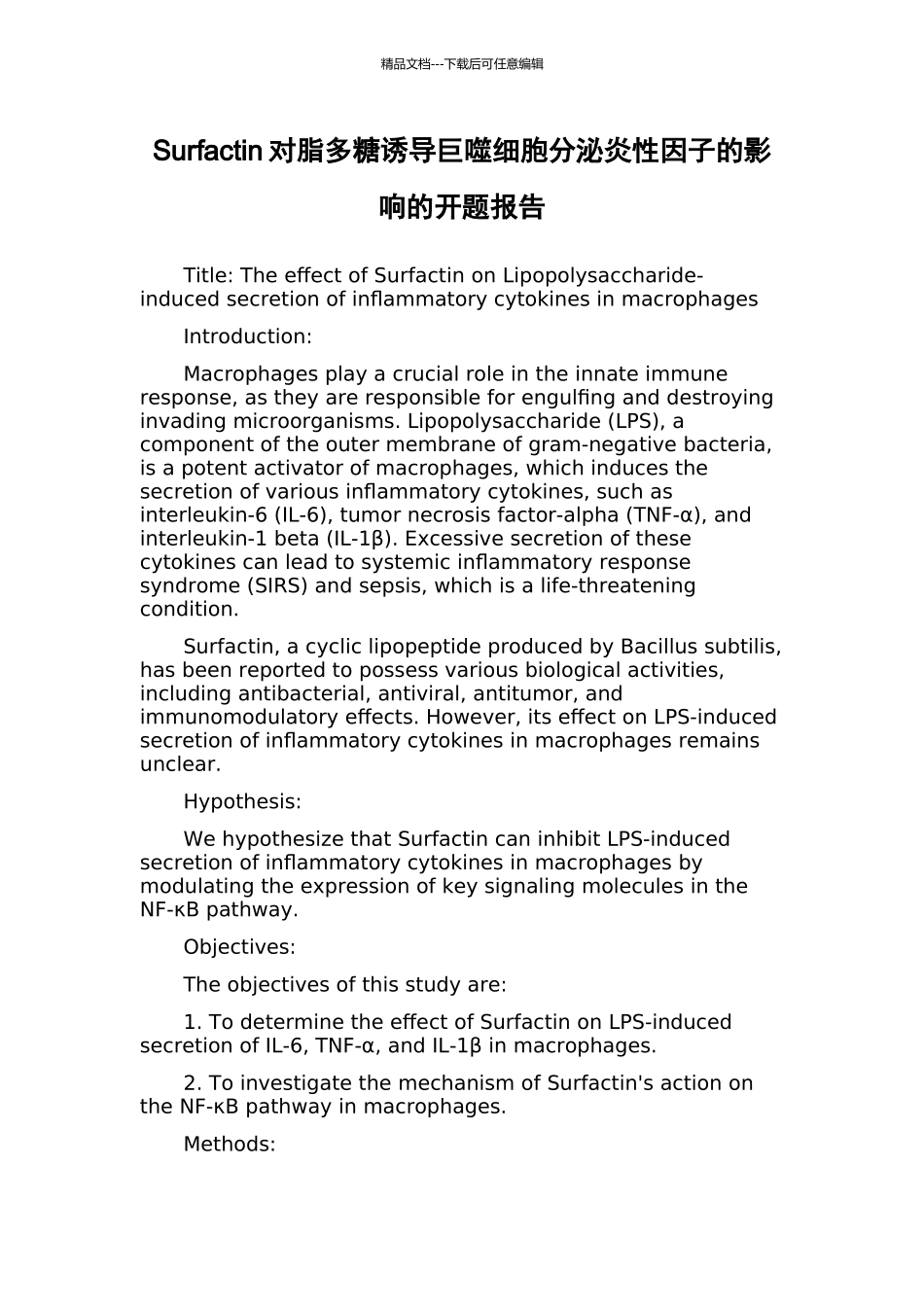精品文档---下载后可任意编辑Surfactin 对脂多糖诱导巨噬细胞分泌炎性因子的影响的开题报告Title: The effect of Surfactin on Lipopolysaccharide-induced secretion of inflammatory cytokines in macrophagesIntroduction:Macrophages play a crucial role in the innate immune response, as they are responsible for engulfing and destroying invading microorganisms. Lipopolysaccharide (LPS), a component of the outer membrane of gram-negative bacteria, is a potent activator of macrophages, which induces the secretion of various inflammatory cytokines, such as interleukin-6 (IL-6), tumor necrosis factor-alpha (TNF-α), and interleukin-1 beta (IL-1β). Excessive secretion of these cytokines can lead to systemic inflammatory response syndrome (SIRS) and sepsis, which is a life-threatening condition.Surfactin, a cyclic lipopeptide produced by Bacillus subtilis, has been reported to possess various biological activities, including antibacterial, antiviral, antitumor, and immunomodulatory effects. However, its effect on LPS-induced secretion of inflammatory cytokines in macrophages remains unclear.Hypothesis:We hypothesize that Surfactin can inhibit LPS-induced secretion of inflammatory cytokines in macrophages by modulating the expression of key signaling molecules in the NF-κB pathway.Objectives:The objectives of this study are:1. To determine the effect of Surfactin on LPS-induced secretion of IL-6, TNF-α, and IL-1β in macrophages.2. To investigate the mechanism of Surfactin's action on the NF-κB pathway in macrophages.Methods:精品文档---下载后可任意编辑Mouse macrophage cell line RAW264.7 will be used for this study. The cells will be pretreated with different concentrations of Surfactin for 4 hours, followed by stimulation with LPS for 24 hours. The levels of IL-6, TNF-α, and IL-1β in the culture supernatant will be measured using ELISA. The expression levels of key signaling molecules in the NF-κB pathway, including IκBα, p-IκBα, p65, and p-p65, will be examined by western blot analysis.Expected results:We expect to observe a reduction in LPS-induced secretion of IL-6, TNF-α, and IL-1β in Surfactin-treated macrophages. We also anticipate a decrease in the phosphorylation of IκBα and p65, which are crucial signaling molecules in the NF-κB pathway, in Surfactin-treated cells compared to control cells.Conclusion:This study aims to investigate the effect of Surfactin on LPS-induced secretion of inflammatory cytokines in macrophages and the underlying mechanism. The results of this study will provide valuable insights into the potential use of Surfactin as an anti-inflammatory agent.

